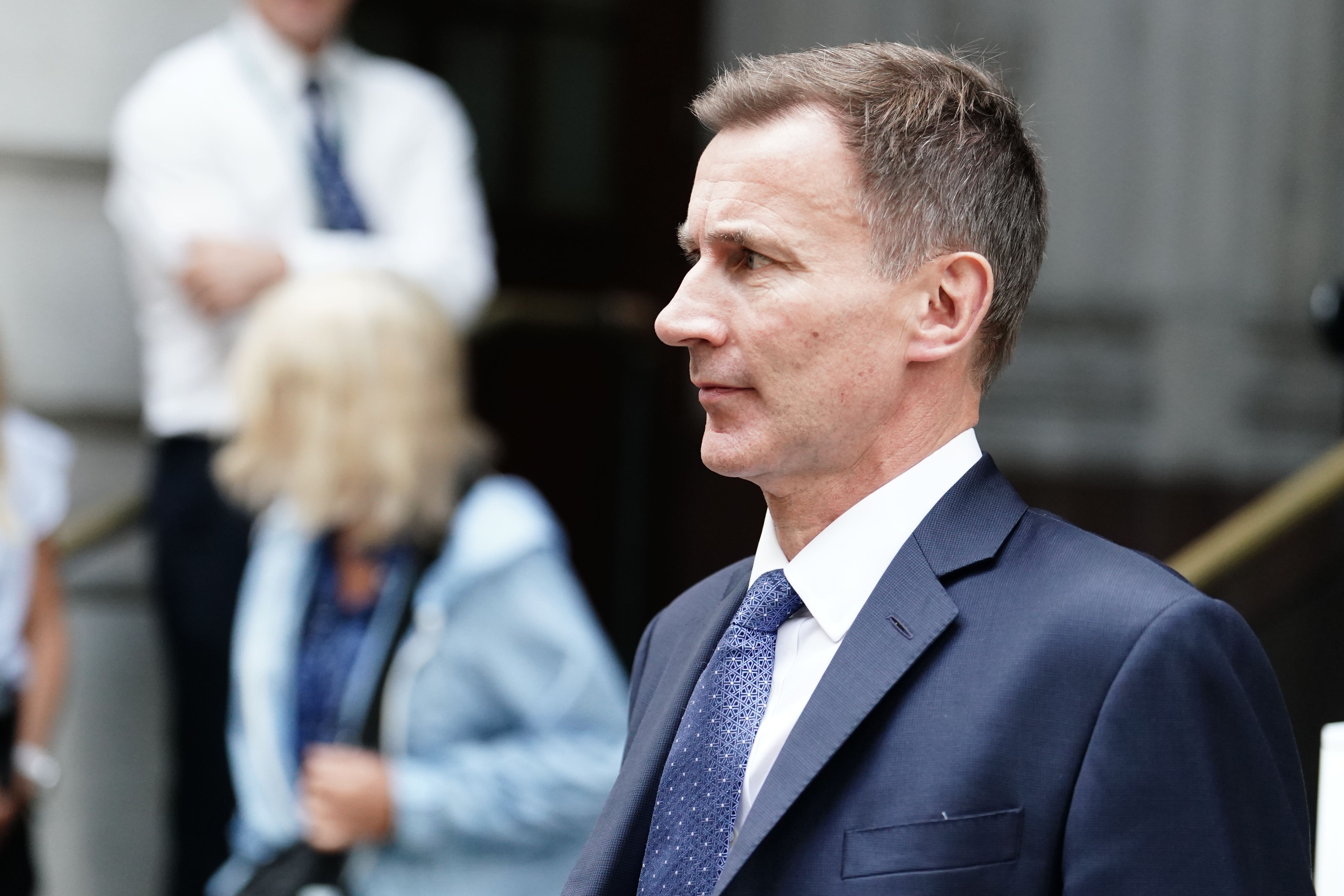Government borrowing undershoots forecasts after inflation-led tax boost
The Office for National Statistics said public sector net borrowing stood at £14.3 billion last month, £1.6 billion less than a year earlier.

Government borrowing was lower than expected last month in a potential boost to the Chancellor ahead of the autumn statement.
The Office for National Statistics (ONS) said public sector net borrowing stood at £14.3 billion last month, £1.6 billion less than a year earlier, as tax revenues were buoyed by inflation.
It still represented the sixth-highest September figure on record.
However, it was noticeably below the £18.3 billion figure predicted by a consensus of economists and further below the £20.5 billion forecast by the Office for Budget Responsibility (OBR) earlier this year.
The ONS also said net debt stood at £2.599 trillion at the end of September, equalling around 97.8% of UK GDP. This is 2.1 percentage points higher than the same time last year.
Chancellor of the Exchequer Jeremy Hunt said: “We had to borrow during the pandemic to protect lives and livelihoods, but since then Putin’s invasion has pushed up inflation and interest rates.
“This means we spent twice as much on debt interest last year as we did the previous year.
“This is clearly not sustainable; we need to get debt falling and reduce public sector waste so that those delivering public services can get back to what they do best; teaching our children, keeping us safe and treating us when we’re sick.”
It comes less than a month before the Chancellor delivers his autumn statement but he has already indicated there are unlikely to be significant tax cuts as part of the package.
However, some economists have suggested he might be more likely to deliver tax cuts or giveaways next year due to the figures.
Ashley Webb, UK economist at Capital Economics, said: “We continue to think that the Chancellor will have some wiggle room for a few pre-election giveaways in the March budget.
“But with the full upward impact on borrowing from higher interest rates and weaker GDP growth still coming down the line, any package of pre-election net tax cuts or spending rises will probably need to be modest.”
Subscribe to Independent Premium to bookmark this article
Want to bookmark your favourite articles and stories to read or reference later? Start your Independent Premium subscription today.
